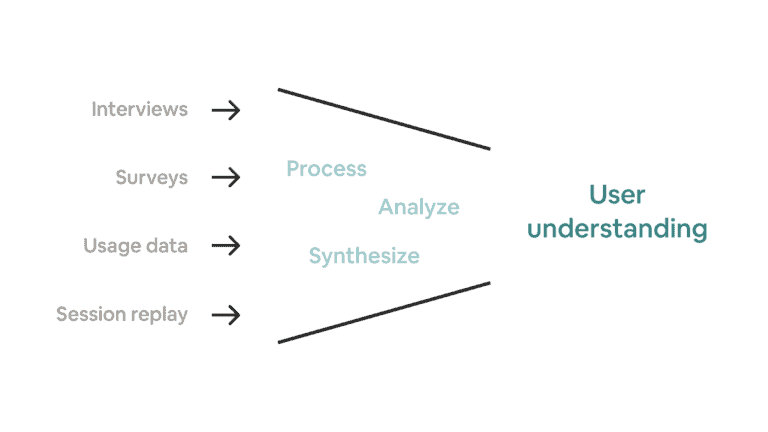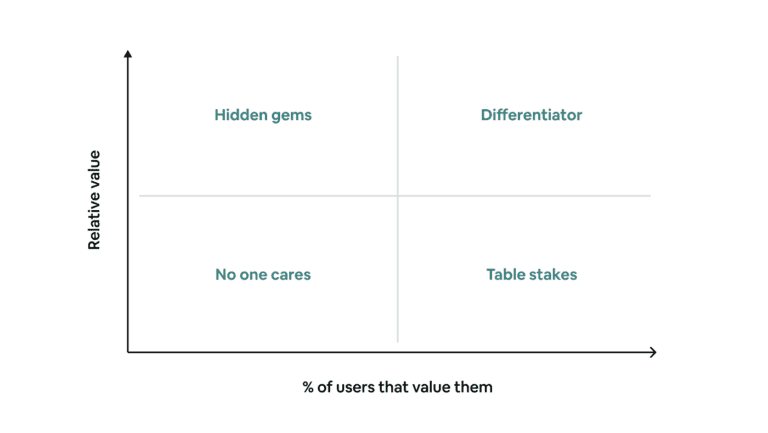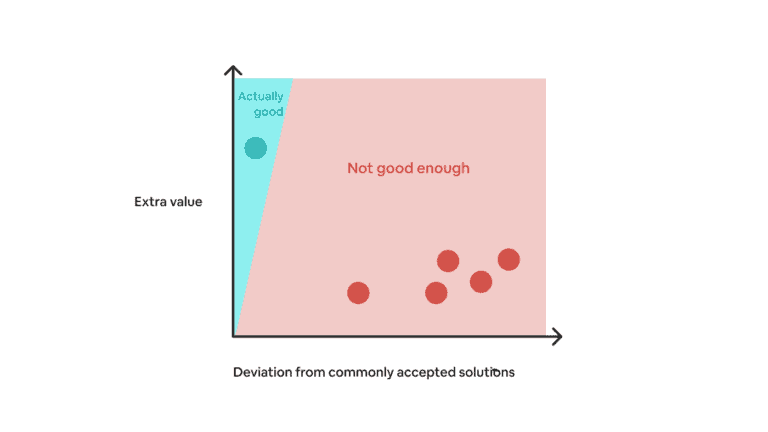If you are an aspiring product manager, you might picture the role as being something like this:
You lead everyone in fun brainstorming sessions, come up with the next killer feature idea, present it to the company in a Steve Job-like fashion, and receive all the glory once it has resulted in 10X company growth.
Unfortunately, the reality is never that perfect, and I’m here to give you a dose of it.
Don’t get me wrong. I’m not trying to discourage you from breaking into product management. I love what I do and wouldn’t trade it for anything else (unless it’s a job as a panda caretaker).
However, I do want to reveal the not-so-glamorous side of being a product manager so that you know what you’re signing up for. Spoiler alert: It’s not all sunshine and rainbows.
You don’t call the shots as often as you think
In theory, product managers should get to make decisions for their responsible product areas – just like how marketers get to decide how campaigns should be run and engineers get to decide how code should be written.
But this is often not the reality.
In many companies, senior management still makes all the product decisions. PMs are simply there to coordinate the implementation. Marty Cagan, author of Empowered, calls this setup “feature teams.” A product manager on a feature team is really just a project manager in disguise.
Even on the most empowered product teams, PMs spend a substantial portion of their time executing bets placed by others. This is usually not due to a lack of ownership but, rather, to the fact that product work is so intertwined with every aspect of the company, and you simply cannot have clear-cut authority on everything.
If you expect to be a mini-CEO in a literal sense, brace yourself for disappointment.
Constant imposter syndrome
Product managers are generalists by design. You need to know everything but are rarely the top expert in any subject among your specialist teammates. Yet, you are supposed to be their de facto leader, which makes you feel like a fraud.
To make the matter worse, the team doesn’t really need your help to produce any output. When you realize that designers and engineers alone are enough to ship features, you can’t help but wonder, “What is the purpose of my role? What do I specialize in? Is ‘product manager’ just a bullsh*t job?”
The good news: Product management is a real specialization (and a highly in-demand one).
And the bad news? The imposter syndrome never goes away. It fades as you become more experienced, but the feeling of insecurity still creeps in every now and then.
Center of politics
Because product management sits at the intersection of all functions in a company, you will get pulled into all sorts of workplace politics.
Despite your best efforts, there is no way you can eliminate politics or distance yourself from it. Inevitably, you will step on some toes sooner or later.
You might be thinking, ‘I don’t do politics.’ Well, think again.
Politics doesn’t have to be some House of Cards-style drama. You can create enemies simply by making a decision that serves the company’s best interest. For example: Saying “no” to a feature request that costs your sales team a deal (and its commission).
Sometimes, you can even get shot as a messenger. For example: You help execute a strategy change decided upon by the senior leadership. Teammates who get affected negatively either mistake you as the one who made the decision or treat you as a scapegoat.
The trickiest situation is perhaps having to disagree with the senior management. Let’s be honest: Many senior executives do not have more knowledge about building products than a seasoned product manager does (especially in startups). However strong the evidence you bring or masterful your communication is, you can never remove opinions and egos from a decision. At times, it creates a power struggle in which doing the best for the company also risks the loss of your job.
To be clear, I am not saying that politics should be encouraged. I am only saying that it exists at every company to different degrees, and you’ll have to get ready to be part of it.
People won’t recognize your full impact
You might have heard that product managers need to focus on outcomes, not outputs.
That’s 100% correct.
The problem? Outcomes are sometimes impossible to measure. Some of the most impactful work you do will take quarters, or even years, to generate business value (e.g., two-sided marketplace, developer platform, experimental tech). With so many moving parts in the market and the organization, it is impossible to pinpoint how much of the company’s growth comes from your contribution.
As a result, to evaluate your impact, people will turn to things they can see:
- Shipping flashy features will be valued more than user research and hypothesis validation.
- Adding new ideas will be valued more than prioritizing ideas.
- Problem-solving will be valued more than problem-prevention.
- Short-term execution will be valued more than long-term planning.
It is easy to get sucked into doing only the “visible” things for dopamine hits. However, to build a great product, you also need to put in a lot of work behind closed doors and be okay with that fact that your impact will never be fully recognized.
Not scared yet?
If you have read this far and not once doubted your commitment to the product manager path, congratulations! You might have passed the first test.
But don’t get too excited yet.
However dreadful I might have made these challenges sound, the reality is at least 50 times tougher. There will be moments when you feel frustrated, demoralized, and lonely to the point that you want to give up. When that happens, remember why you became a PM in the first place, which I hope was for the passion of building great products that people want.
After all, the journey wouldn’t be rewarding without some obstacles along the way, right?




